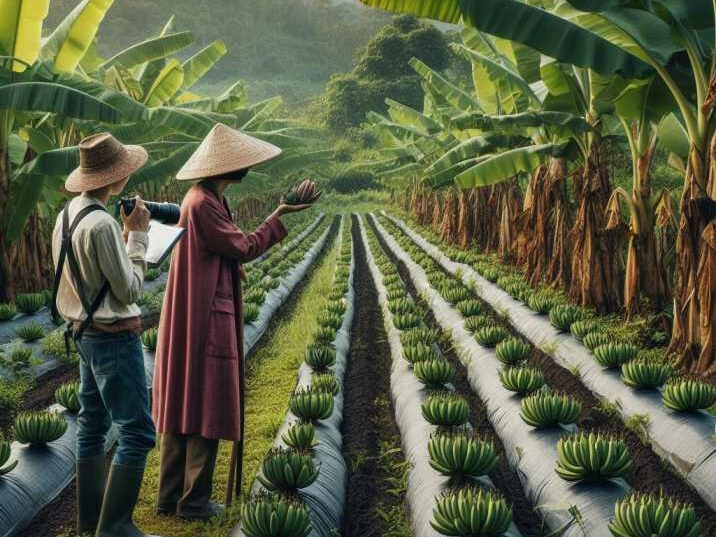Introduction:
Table of Contents
Bananas are one of the most beloved fruits worldwide, and the Cavendish variety reigns supreme in many markets. But have you ever stopped to consider the environmental impact of growing these tasty treats? In this article, we’ll delve into the environmental impact of Cavendish banana farming, shedding light on its effects on our planet.

The Environmental Impact of Cavendish Banana Farming:
1. Soil Degradation and Deforestation:
The cultivation of Cavendish bananas often involves extensive land clearing, leading to deforestation in tropical regions. This practice disrupts delicate ecosystems, contributing to soil degradation and loss of biodiversity.
2. Water Consumption:
Banana plantations require substantial amounts of water for irrigation. Excessive water usage can deplete local water sources and harm aquatic ecosystems, affecting fish and other wildlife.
3. Pesticide Use:
To protect banana crops from pests and diseases, farmers often rely on chemical pesticides. However, these chemicals can leach into the soil and water, posing risks to human health and harming non-target organisms.
4. Carbon Emissions:
The transportation of Cavendish bananas from plantations to consumer markets involves significant carbon emissions, contributing to climate change. Additionally, the use of fossil fuels in farming machinery further exacerbates carbon footprints.
5. Waste Management:
The banana industry generates vast amounts of organic waste, including stems, leaves, and rejected fruits. Inefficient waste management practices can lead to pollution and greenhouse gas emissions, exacerbating environmental concerns.
The Future of Sustainable Banana Farming:
Efforts are underway to promote sustainable practices in banana farming, such as organic cultivation, integrated pest management, and water conservation techniques. By prioritizing environmental stewardship, the banana industry can mitigate its impact on ecosystems and communities.

Table of Information:
| Environmental Impact | Description |
|---|---|
| Soil Degradation | Land clearing for banana plantations leads to soil erosion and loss of biodiversity. |
| Water Consumption | Banana farming requires substantial irrigation, impacting local water sources and aquatic ecosystems. |
| Pesticide Use | Chemical pesticides used in banana cultivation can harm human health and non-target organisms. |
| Carbon Emissions | Transportation and farming machinery contribute to carbon emissions, exacerbating climate change. |
| Waste Management | Inefficient waste management practices result in pollution and greenhouse gas emissions. |
Conclusion:
In summary, while Cavendish bananas are popular, their farming can harm the environment. Yet, embracing sustainable practices offers hope. By choosing eco-friendly options and supporting ethical farming, we can cultivate bananas that benefit both people and the planet.
FAQs (Frequently Asked Questions):
- Q: Are Cavendish bananas harmful to the environment?
- A: While Cavendish bananas are not inherently harmful, their large-scale cultivation can lead to environmental issues such as deforestation and pesticide pollution.
- Q: How can consumers support sustainable banana farming?
- A: Consumers can choose certified organic or Fairtrade bananas, which promote environmentally friendly practices and fair wages for farmers.
- Q: What alternatives exist to conventional Cavendish bananas?
- A: Consumers can explore alternative banana varieties such as Dwarf or Red bananas, which may be cultivated using more sustainable methods.
- Q: What role do governments play in regulating banana farming practices?
- A: Governments can enact policies and regulations to promote sustainable agriculture, enforce environmental standards, and support small-scale farmers.
- Q: How can banana companies improve their environmental performance?
- A: Banana companies can invest in research and development to develop eco-friendly farming technologies, reduce carbon emissions, and implement responsible waste management strategies.
